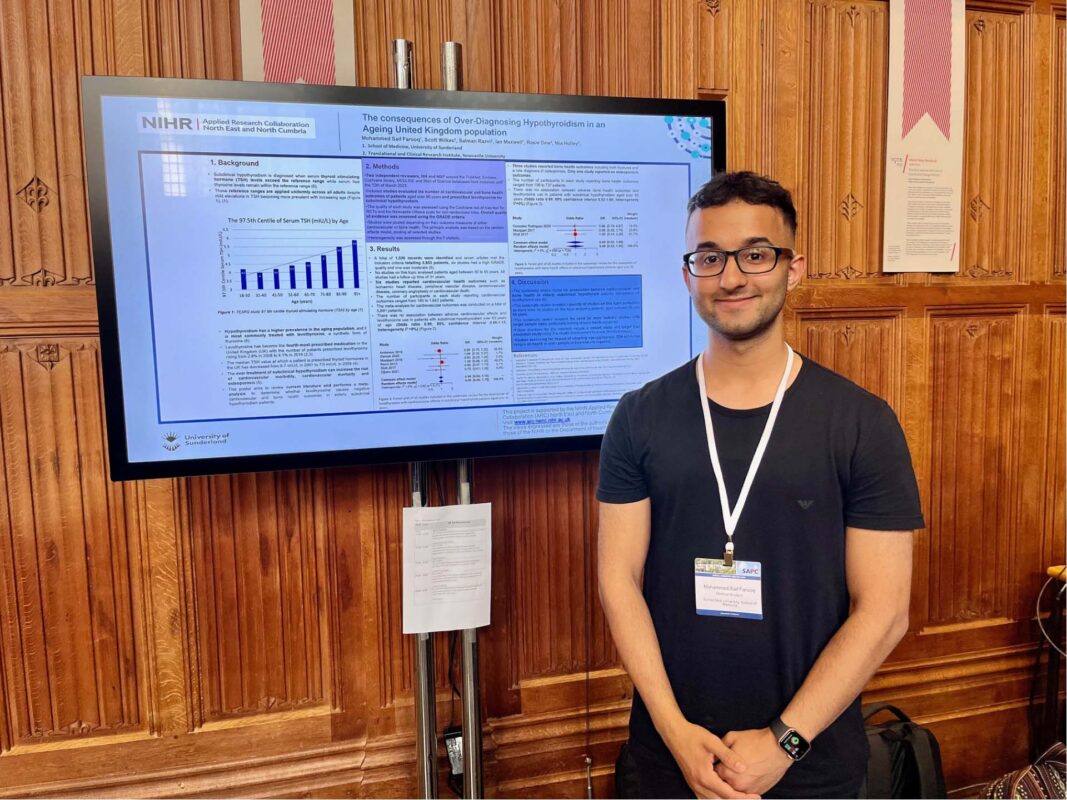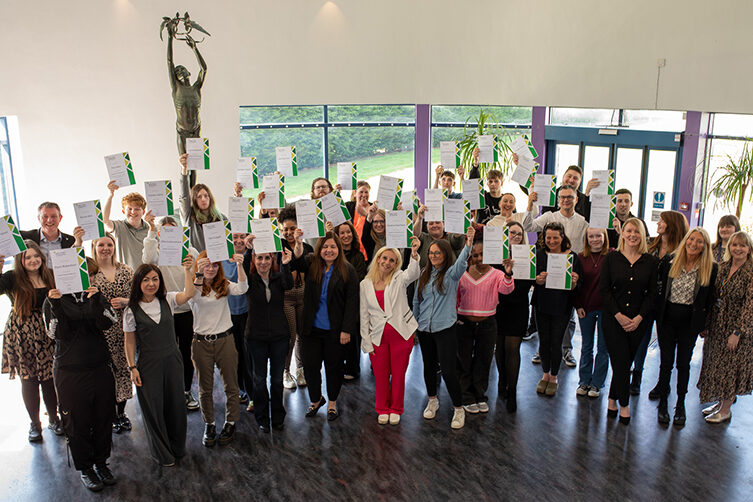How researchers are rethinking the way we treat thyroid conditions

Researchers from the University of Sunderland(@sunderlanduni) are rethinking the way in which patients are prescribed medication for thyroid conditions.
Mia Holley, as part of her PhD project, has researched the effects of the medication levothyroxine has on patients who have hypothyroidism, a condition where a patient has an underactive thyroid.
Hypothyroidism affects 5-10% of the UK population and is often treated with levothyroxine. Mia wanted to investigate the use of this medication and its outcome further.
Using electronic healthcare records of 6% of the UK population, Mia discovered that although the medication is associated with beneficial cardiovascular outcomes, it also can impact bone health and contribute to all-cause mortality outcomes.
Mia presented her findings at a conference organised by the Society of Academic Primary Care (SAPC) in Bristol where she challenged current medical national guidelines for the treatment of hypothyroidism.
Mia said:
“Presenting our findings at the SAPC, attended by general practitioners who prescribe and monitor levothyroxine daily, was a valuable experience. It provided an opportunity to receive feedback and suggestions from healthcare professionals directly involved in the management of subclinical hypothyroidism.
“This research represents the most extensive study to date on the use of levothyroxine in individuals over 50 years old with subclinical hypothyroidism.
“We analysed various outcomes associated with levothyroxine use and provided vast insights into its benefits and risks for this patient group.
“These findings have the potential to significantly impact clinical practice by offering more informed guidance on levothyroxine prescribing, thereby improving patient outcomes.”
Mia was joined by Mohammed Saif Farooq, a medical student at the University, who also had the opportunity to present his research that looked at the consequences of over-diagnosing hypothyroidism in an aging population which links to Mia’s research.
Saif said:
“Presenting in Bristol was a rewarding experience, especially as a third-year medical student. It was a unique opportunity to share our research on a national platform and has been a highlight of my academic journey so far.
“Our aim is to mitigate unnecessary risks, enhance patient safety and levothyroxine efficacy for older patients with subclinical hypothyroidism. I hope our work informs and refines future trials on the cardiovascular and bone health outcomes of levothyroxine in aging subclinical hypothyroid patients.
“The support from the University staff has been phenomenal. Mia has been an outstanding supervisor and role model, and Professor Wilkes has provided invaluable guidance and expertise. I also want to thank the co-authors, the admin team, the faculty, and Dr Randles for their support.”
The team hopes to conduct further research in the area, looking at how levothyroxine could be prescribed alongside bone protection medication to improve health outcomes.
Professor Scott Wilkes, Head of the School of Medicine at the University of Sunderland, said:
“Mia has been an outstanding PhD student and has developed into a very capable medical statistician.
“Mia’s support for Saif has been exceptional and has led to his first conference presentation and peer-reviewed publication during his medical student years. Their work is set to challenge guidelines for the treatment of elderly people with sub-clinical hypothyroidism.
“They have shone a very bright light on the cardiovascular benefits and bone health risks in this group of patients. It has been a pleasure working with them both.”











Responses